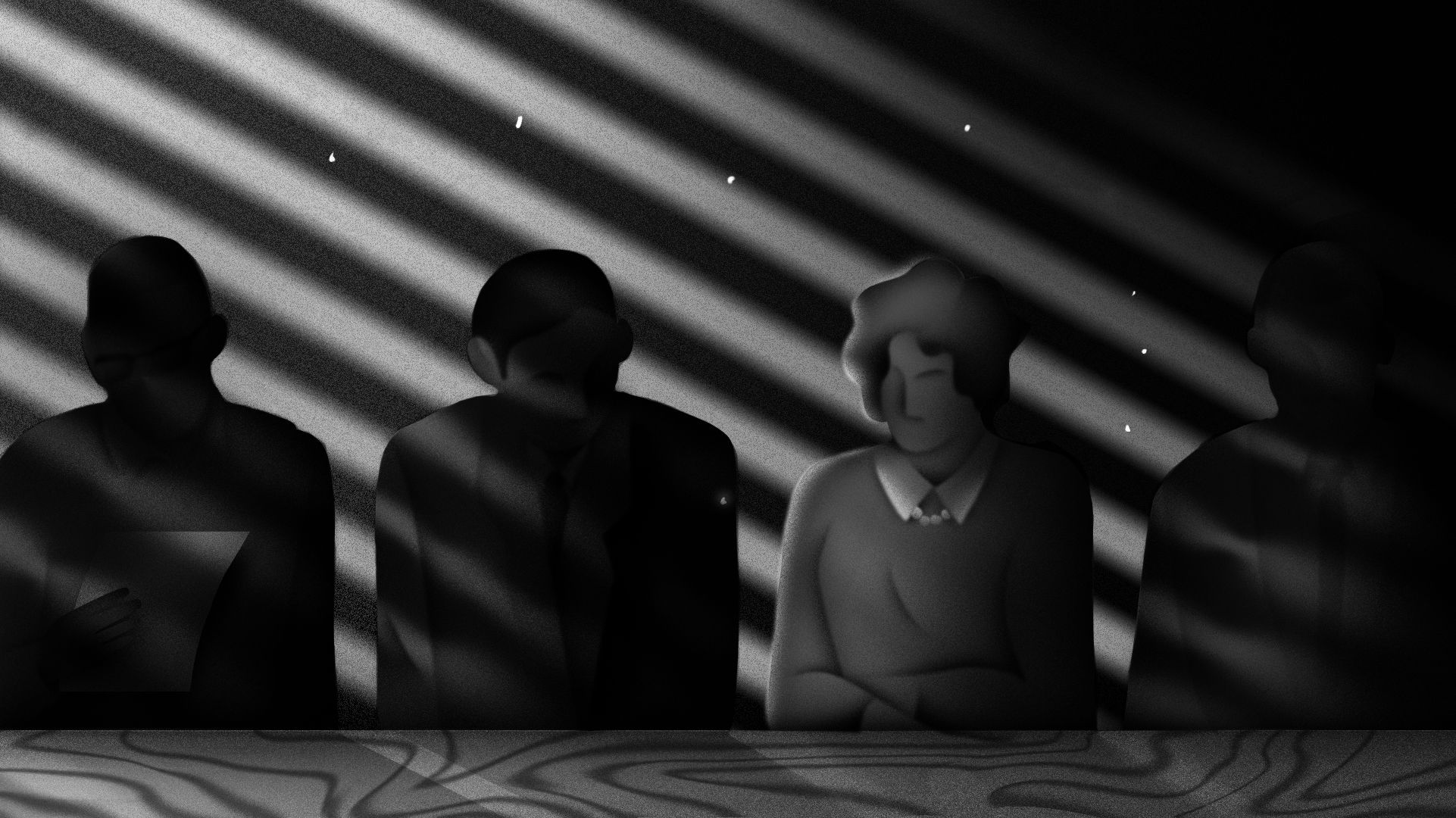Rebekka DUNLAP
The Death Committee
The Death Committee is a series of animated and still images that accompanied Brooke Jarvis's spoken word piece about the genesis of Dialysis treatment and the difficult decisions that had to be made in order to use the new technology. It toured across the United States with the Pop-Up! Magazine Fall 2017 Issue and was performed with the support of an original score and live orchestra. Pop-Up!, is a "Live Magazine" that exists only in the moment, appearing exclusively and briefly in such venues as the Paramount Theatre in Oakland, Revolution Hall in Portland and Lincoln Center in NYC.
Many thanks to Brook Jarvis for her powerful journalism and Annie Jen for her wonderful Art Direction.
"In 1960, Belding Scribner, was a leading kidney doctor in Seattle. If your kidneys were injured in an accident, say, and could recover, he could help see you through. But if there was something incurably wrong with them, there wasn’t much he could do—without your kidneys to clean out the useless or dangerous parts of what you eat and drink everyday, your blood eventually becomes a poison that stops your heart and kills you."
"After one hard conversation, Scribner woke up in the middle of the night with a simple solution that would allow patients to receive on-going treatment from an artificial kidney machine. It was a shunt that let people plug in, again and again, while the machine cleaned their blood—what we know as dialysis.
But there was one big problem with Scribner’s invention: it worked…dialysis was wildly expensive- treatment for one patient for one year cost twice the average annual household income. The longer someone lived, the more they cost.
To choose who would get treatment, they started a committee..."
"There were seven of them: A banker, a surgeon, a labor leader, a lawyer, a minister, a state government official, and one woman, who became known in media reports simply as 'the housewife.'"
"The doctors didn’t give the committee any guidance in how to make their decisions. They wanted them to come up with their own system, their own set of criteria. But the committee members weren’t used to making life-or-death decisions, and the prospect terrified most of them."
"In one meeting, the committee had to choose two patients for treatment, of five who were dying: a chemist, an accountant, a small businessman with three children, an aircraft worker with six, and a poor woman with two. They debated whose widow might be more likely to be able to remarry, and whether society was helped more by the education of the chemist and accountant, or by the service that parents provided taking care of their children. They wondered whether the businessman’s involvement in his church was an argument that he was strong enough to endure a lingering death, or a sign that he was a value to society."
"In the end, they chose the businessman and the aircraft worker to be treated. The others died."
"There have always been death committees…there always will be, as long as there is death. But we’re wrong to picture only a panel with shadowy faces. Sometimes a committee is just a patient, doctors, and family sitting down for a necessary conversation, when options are more limited than anyone would like."
Photo Courtesy of Johnathan H. Liu of GEEK DAD









